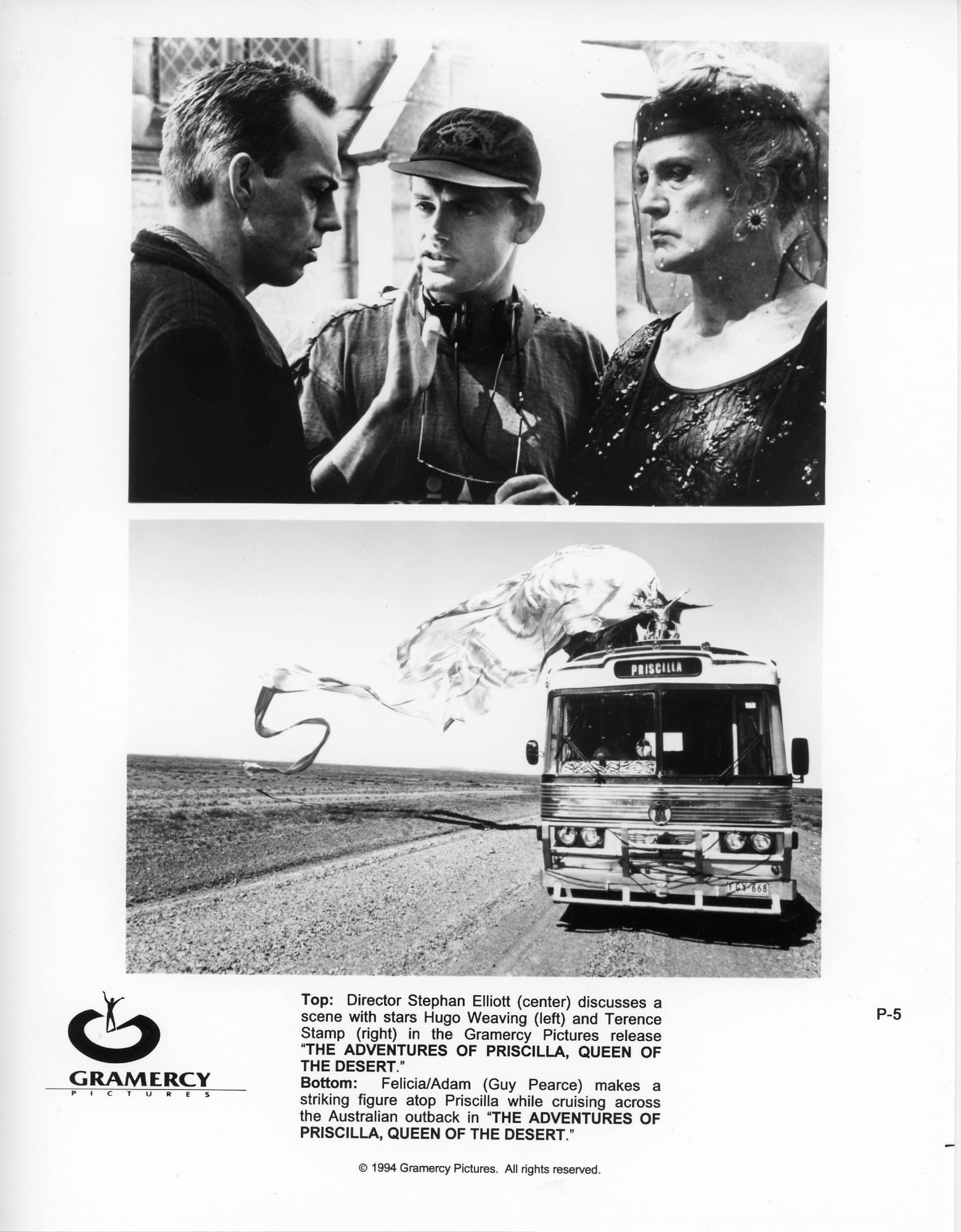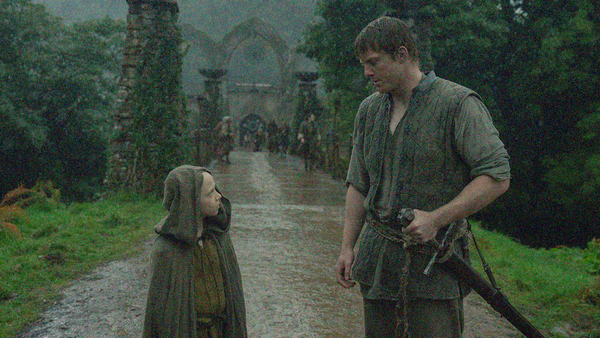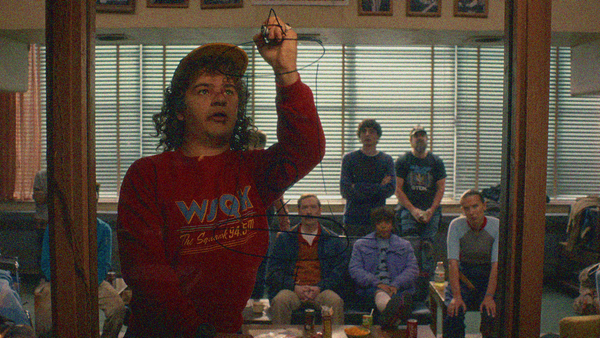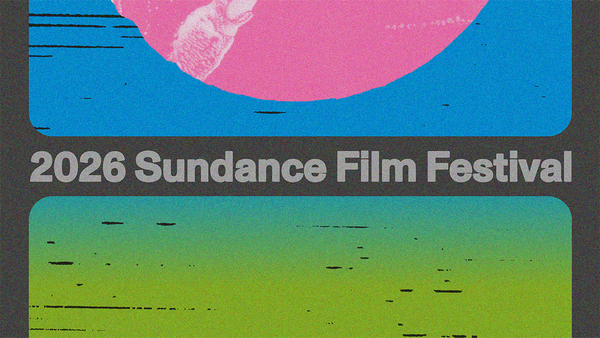Week Ending 10/10/25
Rochester's Anomaly returns

Rochester's genre film festival Anomaly is back again this year with screenings at both The Little Theatre and The Dryden Theatre from November 5-9. I attended the first go-round pre-COVID and had a lot of fun spending a day at The Cinema Theater and things only look to have gotten better since.
The folks behind the cinematic scares have just announced the first four titles with some great international flavor. I can personally vouch for Mexico's I Am Frankelda after reviewing it out of Fantasia, but It Ends (USA), Reflection in a Dead Diamond (Belgium, France, Italy, Luxembourg), and Night Stage (Brazil) all sound like they're worth checking out too. Sign-up for Anomaly's newsletter and/or follow their socials for more title reveals as they get closer to launch.
Passes are also now available for purchase with the special "Early Ghoul Pass" pricing ending tonight (Friday, October 10) at 11:59pm—so head over there to secure yours now.

Bring Her Back
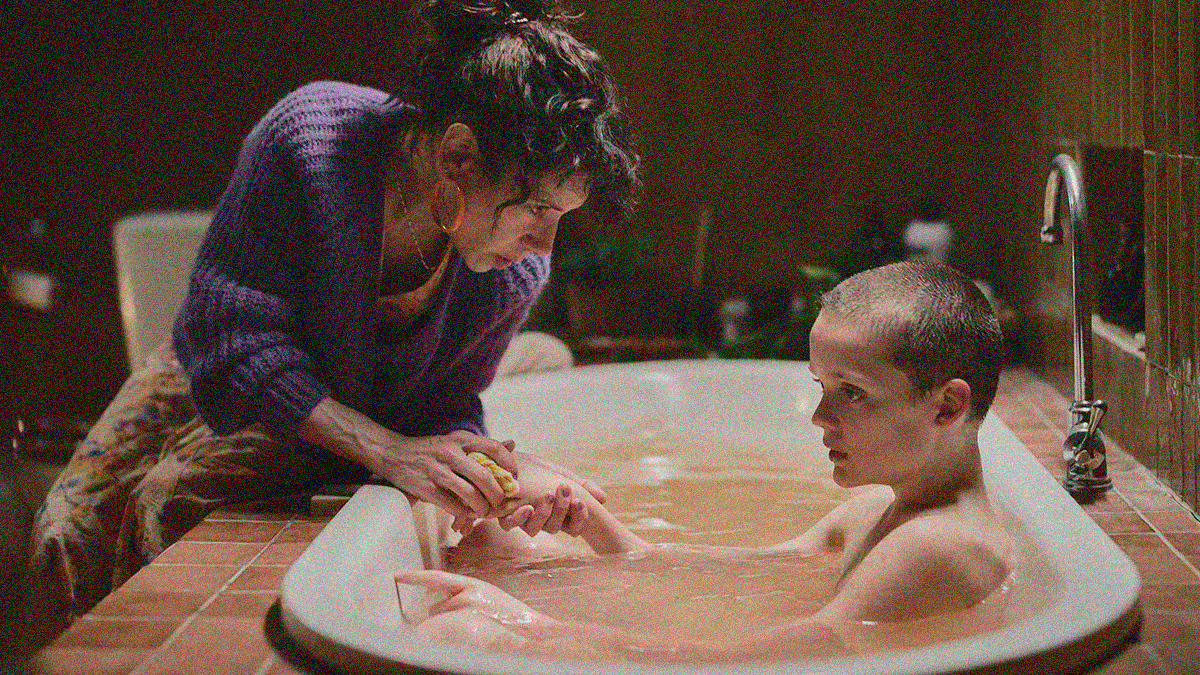
This is a ballsy script. So much so that I do think pulling back on the throttle at the eleventh hour causes it to lose some impact. The ending on-screen is exactly what you'd expect from a more mainstream version of what comes prior, so it capping off what otherwise proves to be a glorious subversion of every trope-y turn on display inherently feels like a misstep.
Bring Her Back is still very good, though. Between this and Talk to Me, Danny Philippou and Michael Philippou are definitely confirming they're the real deal where it comes to contemporary dark and (mostly) uncompromising horror.
Give Jonah Wren Phillips all the flowers too as his performance is the sort that should win awards but won't because it's in a genre film. Sally Hawkins is also phenomenal, but her internal battle with grief is yet another effective example of familiar metaphoric territory. That Phillips bests her work while also fulfilling the stereotypical "monster" role is something else completely.
8/10
The Monkey
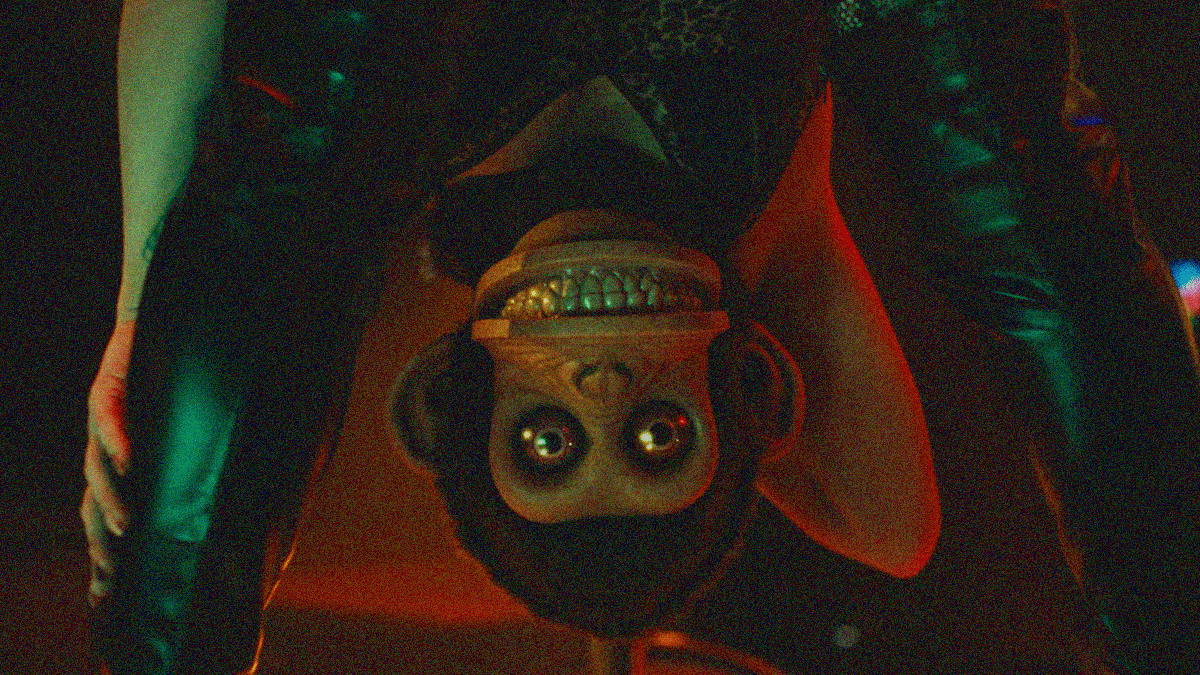
I was ready to praise the special effects until the bee scene, but, that travesty aside, this was a lot of fun.
Do I cringe every time a new Osgood Perkins poster comes out with some rendition of "A ____ Trip From" written on it because of this film's campaign? Yes. That isn't anything anyone has ever said about his work. But turning a 1980 Stephen King short story into a splatter comedy is truly inspired.
I must only wonder if Chris Terrio and David S. Goyer deserve a writing credit for the climactic Batman v Superman: Dawn of Justice "Martha" spoof. Theo James' delivery of the line, "Oh yeah. I guess she was. Never thought about it like that." made me cackle.
7/10
Plainclothes
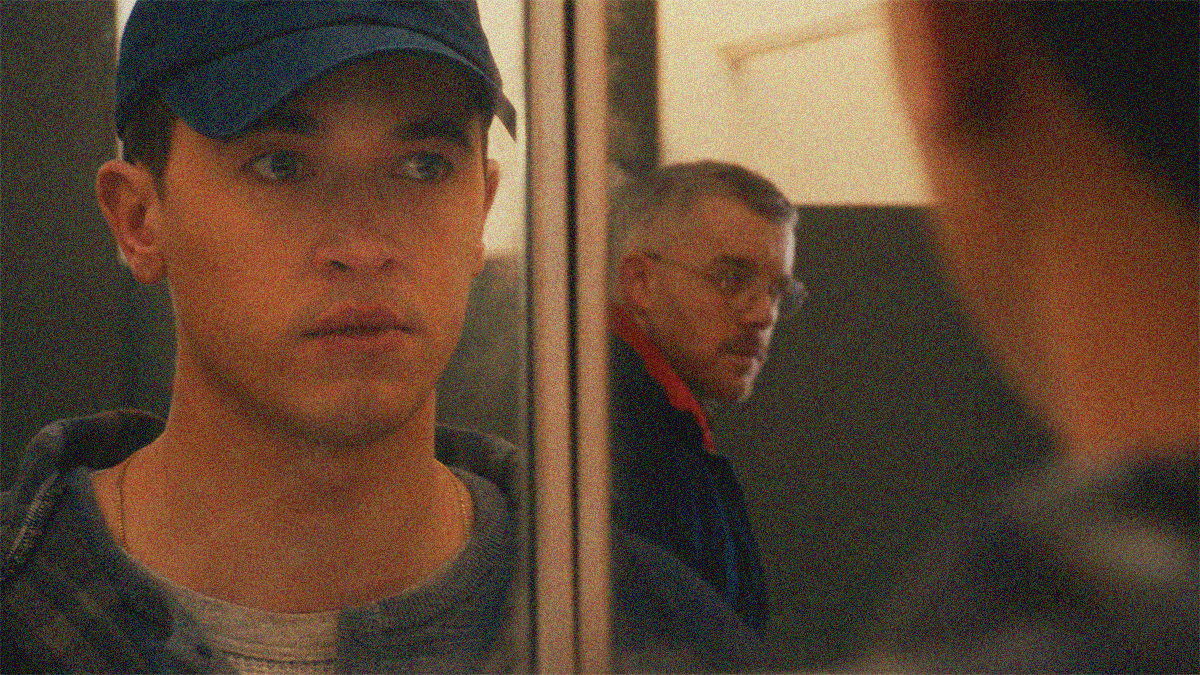
We don't know how long Lucas (Tom Blyth) has been the key undercover officer in a sting operation to entrap gay men at a local mall, but his conscience is now getting the better of him. Not just because he is ruining their lives for money (few ever risk going to court and just pay their fine), but because he's beginning to see himself in their faces. So, while Carmen Emmi's feature debut Plainclothes never overtly states as much, we must wonder if the job is actually the reason Lucas has begun to question his own sexual identity.
His sergeant explains that arrest numbers are down, so they're going to train a rookie to add some variety in case Lucas is burned. We therefore must assume he's been doing this for a long while. Why take the job if he's gay? Maybe he thought it would quell his attraction to men—an attempt at exposure therapy to twist his mind into associating homosexuality with criminality to get men off his mind so he might finally be able to love his girlfriend (Amy Forsyth's Emily) as much as she does him.
Either way, the opposite occurs. Lucas finds himself wishing he could enter that stall and act on his instincts rather than simply wait for the mark to expose himself and be arrested. So, after inevitably succumbing to the guilt of villainizing them for having the courage to do what he can't, it's only a matter of time before he gives in. Even then, however, he might not be ready to go through with what he's been clandestinely teasing. Fear is a strong emotion and finally kissing Andrew (Russell Tovey) might just make it stronger.
A period film set in 1990s Syracuse, Plainclothes is conscious of the threat a man like Lucas is under. From loved ones. From his job. From society. The only way to truly know this life is to jump in the deep end and yet he's keenly aware of how that can backfire considering what he does for a living. A note with Andrew's phone number therefore becomes evidence of perversion. Meeting at a movie theater holds the potential for judgmental looks from other patrons. Being honest about his feelings with anyone could destroy everything.
That anxious insecurity becomes the driving force of the film's suffocating sense of tension in present-day. Shot in widescreen with Lucas donning facial hair, this device starts with him arriving at his mother's (Maria Dizzia's Marie) house for New Year's. It's there that he loses an unopened letter in the snow for which his desperation to find it quickly reveals the sender and the inherent danger to anyone else reading it. And it's through his paranoia of his truth being exposed that the memories of his journey towards this day unfold.
These flashbacks play in full frame aspect ratio with brief vignettes shot under a grainy Hi8 haze spliced in for added aesthetic flavor. Lucas is clean-shaven while working the mall, conversing with his mother (about his ill father Gus and her leech of a brother Paul, played by Gabe Fazio), and interacting with Emily. We learn about his state of mind and obvious unease courtesy of a scratching tick. We realize he only has one person he can talk to and even they can't be fully trusted. And we witness just how urgent meeting Andrew proves.
Emmi takes us back and forth from the current New Year's Eve to those prior months unspooling in chronological order. The letter getting lost has Lucas thinking about how he reconciled his feelings for Andrew with the mandate of his job. Seeing Paul's new, much younger girlfriend (Alessandra Ford Balazs' Jessie) puts his mind on Emily and the love they share (the final scene with Blyth and Forsyth is unforgettable). And someone else getting to that letter first whisks Lucas back to the fallout of his attempt at romance.
This is where Plainclothes shows the narrative strength to match its formal execution. A lesser film would treat its characters' ages as an excuse for love at first sight rather than a late-stage coming-of-age story—complete with unseen pitfalls and unavoidable heartbreak. While 2025 is hardly a utopian haven for equality when it comes to the LGBTQ+ community, many are able to go through the internal chaos Lucas endures on-screen in their teens. In the 90s, though? We're talking twenties, thirties, and beyond with a lot more to lose.
Andrew is therefore more than just a love interest. He's also an unwitting mentor insofar as walking Lucas through the realities of being closeted in a city that would kill him if he wasn't. Lessons about AIDS. Living dual lives. Making encounters about sex rather than love if the latter isn't possible. The other side of that coin, though, is that Andrew's insight and protective nature only endear him more. Lucas can't help falling for him hard. The attention. The passion. The joy. He walks himself to the edge of an emotional cliff.
It culminates in an intensely violent catharsis as all these experiences roiling around within Lucas reach their breaking point via a misinterpretation that finally causes him to choose a side. In his personal life. His career. His yearning to breathe for the first time in years. It's a fantastic turn by Blyth as he treads through the innocence and pleasures of desire while existing in a walled-off prison of prejudice pretending to be morality. The path forward won't be without its devastating mistakes, but every step Lucas takes is by necessity.
9/10
There Was, There Was Not
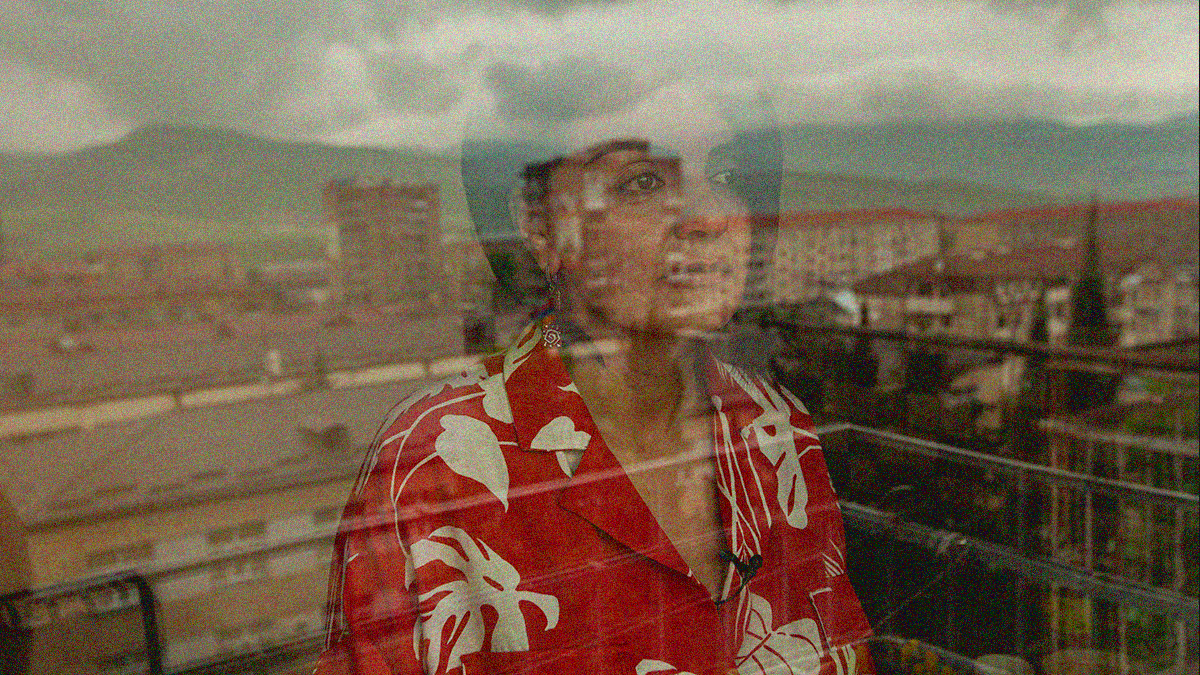
It began as a documentary to tell the stories of four women helping to make their homeland of Artsakh a better place almost thirty years after war between Armenia and Azerbaijan ended in a tenuous peace circa 1994. The Soviet Union had given the area to the latter country upon dissolution despite its population being composed of ethnic Armenians, so the conflict ending in the creation of an independent republic almost feels unreal. Like a fairy tale of hope for the future. A story searching for its permanent happily ever after.
Director Emily Mkrtichian chose the title There Was, There Was Not to lean into this fact considering Armenian myths start with that phrase rather than our usual "Once upon a time ..." Her film ultimately begins and ends with the words, "There was, there was not a Heaven, and it was called Artsakh." And its first half reveals its beauty alongside the women striving to maintain it like Siranush Sargsyan via politics, Gayane Hambardzumyan and her Women's Center, Svetlana Harutunyan defusing old land mines, and Sose Balasanyan's Olympic judo aspirations.
The second half conversely depicts the shattering of that peace by an Azerbaijani attack to reclaim what it deems its property without any regard for the lives of those currently living upon it. Under this new phase of Armenian genocide, that same quartet continue their tireless work. Siranush pivots into journalism to shed light on the injustices being committed. Gayane keeps working to clothe and protect those forced to flee. Svetlana educates those who remain about the danger of unexploded ordinances. And Sose enlists to fight on the front line.
Mkrtichian could have fled with the footage she took in 2018 of her smiling subjects gradually pulling the needle away from patriarchal rule, but knew its narrative importance would inevitably be overshadowed by everything that occurred next. So, she decides to stay as well. To capture the escalating drama during 2020 through the eyes of those same dedicated souls as Artsakh moved towards what would become its final days. Surviving the shelling. Enduring the uncertainty of loved ones being killed. Wondering if it will ever end.
The shift is made with a brief intermission showing the four sitting in a chair amidst gorgeous foliage, each lamenting how they'll never truly live freely again. All that promise of preserving a homeland for their children is gone in an instant once they're forced to reconcile with the reality that Artsakh is no more. It doesn't get more depressing than seeing Siranush on her family's property post-war knowing it was no longer theirs or Gayane's husband explaining how they should try not to think about Artsakh for at least another twenty years.
You want to go back to Gayane's debate with other members of her center about what a woman's right is or Sose sparring on the international stage, but Mkrtichian knows that the juxtaposition would lose its potency if she messed with the chronology. These are different people in the end and not just because of their displacement or career evolutions. They've each lost a piece of their identity. Those happy times have been taken from them, so they should remain as memories to us as well.
So, when Siranush looks at the bomb pamphlets Svetlana hands her, we feel the same sense of warped déjà vu recalling her election fliers one year prior. We reach backwards to squint and try to wrap our heads around how things could have turned upside down so fast. Because that's the part of these stories that get forgotten amongst the casualties and destruction. The upheaval of everyday things we take for granted revealing how there are more ways to end a life than death. But also, the necessary courage to somehow keep going anyway.
8/10
Urchin
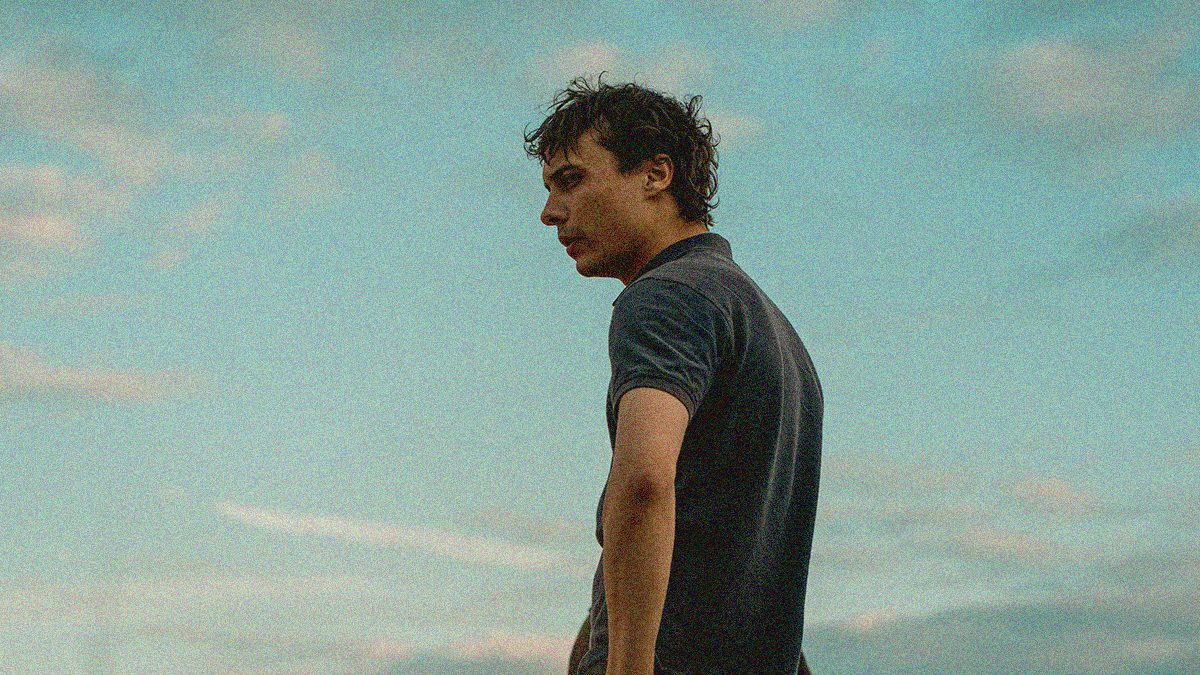
To read the press notes for Harris Dickinson's directorial debut Urchin is to realize the artist's politics are very clearly stated by a character named Simon (Okezie Morro). This is a man who witnesses a fight between Mike (Frank Dillane) and Nathan (Dickinson)—two unhoused vagabonds squabbling over money as the former knows the latter stole his wallet and the latter explains he only did it because the former owed him. Simon breaks it up, offers to but Mike a meal, and talks about the government's apathy toward the homeless crisis.
This isn't a "savior" character atop a soapbox, though. Dickinson strives to simply bring an authentic portrayal of men like Mike to the screen that gives them their humanity without also projecting judgement upon them. Simon is therefore a mirror upon those of us with the empathy to acknowledge there's a problem and want to help in what little ways we can as well as a cautionary tale insofar as why that shouldn't be our responsibility. Because without effective infrastructure to protect the unhoused, Good Samaritans are inevitably left vulnerable too.
Urchin is therefore best when exposing gaps in the system. That goes for people like Simon putting themselves in danger through compassion and those forced to interact with the Mikes of the world by no fault of their own (convenience store clerks and bouncers who must put their customers' wellbeing first). It also goes for those who are paid to help yet receive none themselves—think the social worker keeping Mike at arm's length or the mediator talking in a patronizing tone. Can you blame Mike for acting like a child if the system treats him like one?
It's a complex question since you must blame him too. Mike is the one acting in ways that ultimately land him in prison, but he's also an addict with obvious psychological trauma and emotional insecurities who often can't stop himself from falling victim to his own impulses. That's why I must commend Dickinson (who's worked with homeless charities and community initiatives for years) for treating the issue with an objective lens. Show how people try, how they find their limits, and how they fail. Show how the cycle never miraculously ends.
Because Mike does surface for air. His most recent prison stint gets him sober enough to feel remorseful and determined to turn things around. But it's not long after seeing him do the work before he inevitably stumbles without a safety net. That's the real issue with understaffed institutions and hardline benefit caps established by politicians with no clue what it means to be unemployed or unhoused. Having Mike apologize to a victim feels like a fix-all path forward on paper, but it might do more harm if no one helps him navigate his emotions.
This is true in all aspects of life when things most people can brush off become triggers that set Mike back months in an instant. How do you teach someone responsibility and growth if they've never been one place long enough to fully comprehend their meaning? Mike isn't wrong to complain about his co-worker in a hotel kitchen for slacking off and not checking his work. Should Mike take the initiative to ensure his work is pristine enough to not need checking? Sure. But he doesn't have the temperament or social skills to get there.
So, the bottom drops again. Not so completely that he's right back where he started, but enough to guarantee the next misstep gets him exponentially closer. More new friends Mike can't quite let in without risking a backslide (Shonagh Marie and Karyna Khymchuk). Romantic entanglements he can't approach in a mature enough manner to not reduce them to compulsory crutches meant to serve his needs (Megan Northam). More chances to find himself even worse off than before because the attempt to be better only proved hope was a lie.
Is the film a downer as a result? Definitely. Dickinson's direction is assured and he throws in some intriguing flourishes that make you think (appearances of an old woman), make you confused (a journey through a prison drain and microscopic cells before landing in a cave to show Mike's isolation), and make you wonder if he could have pushed things even further into allegory (the ending's religious overtones during its final descent), but the miserabilism is unavoidable from this subject matter. Keeping things light only goes so far.
Credit Dillane for a lot of that heavy lifting too because his performance is worthy of all the accolades (including Un Certain Regard - Best Actor at Cannes). He lends the role enough charm and humor to make friends quickly while also imbuing the desperation necessary to turn on a dime and exploit that camaraderie for selfish gain. His Mike does endear himself to us. We want him to succeed even if we know in our heart that he won't. Not that he can't escape his demons, but that Dickinson's goal is to show how "wanting" isn't enough.
7/10

This week saw The Boogeyman (2023) added to the archive (cinematicfbombs.com).
Sophie Thatcher dropping an f-bomb in THE BOOGEYMAN.

Opening Buffalo-area theaters 10/10/25 -
• The Bride (Cô dâu ma) at Regal Galleria
• A House of Dynamite at Dipson Amherst, Capitol
• Kiss of the Spider Woman at Dipson Amherst; AMC Market Arcade; Regal Elmwood, Transit, Galleria, Quaker
• Plainclothes at Regal Transit, Quaker
Thoughts are above.
• Roofman at Dipson Flix, Capitol; AMC Maple Ridge, Market Arcade; Regal Elmwood, Transit, Galleria, Quaker
• Soohe Ve Cheere Waleya at Regal Elmwood
• Soul on Fire at Dipson Flix, Capitol; AMC Maple Ridge; Regal Elmwood, Transit, Galleria, Quaker
• Tron: Ares at Dipson Flix, Capitol; AMC Maple Ridge, Market Arcade; Regal Elmwood, Transit, Galleria, Quaker
Streaming from 10/10/25 -
• Aliens Expanded (Shudder) - 10/10
• How to Train Your Dragon (Peacock) - 10/10
• John Candy: I Like Me (Prime) - 10/10
• Lurker (MUBI) - 10/10
"This self-awareness allows Lurker to prove so unique despite its familiar machinations. Russell is using the stalker narrative to mask the fact that this is actually the story of a volatile yet evolving partnership." – Full thoughts at HHYS.
• My Father, the BTK Killer - 10/10
• Swim to Me (Netflix) - 10/10
• The Alabama Solution (HBO Max) - 10/10
• The Woman in Cabin 10 (Netflix) - 10/10
• Vicious (Paramount+) - 10/10
• Everybody Loves Me When I'm Dead (Netflix) - 10/14
• Inside Furioza (Netflix) - 10/15
• Bad Shabbos (Netflix) - 10/16
"Credit the filmmakers too for never holding piety above the absurdity of the premise. The goal is to show how much this family loves each other, but that shouldn’t erase the fact they can still also be bad people." – Full thoughts at HHYS.
• I Know What You Did Last Summer (Netflix) - 10/16
• Our Fault (Culpa nuestra) (Prime) - 10/16
• The Time That Remains (Netflix) - 10/16
Now on VOD/Digital HD -
• Afternoons of Solitude (10/7)
• Bad Men Must Bleed (10/7)
• The Baltimorons (10/7)
"Funny people can hurt and straight-faced professionals can know how to have fun. Finding the honesty to admit and show those realities ultimately comes down to trust. That’s what Strassner and Larsen’s chemistry delivers." – Full thoughts at HHYS.
• Cloud (10/7)
"The film is therefore pushing the toxicity of the internet to its extreme so that the rantings and ravings of people letting off steam and finding kindred souls to lament their shared victimhood can spill over into the real world." – Full thoughts at HHYS.
• The Conjuring: Last Rites (10/7)
• East of Wall (10/7)
"An inability to differentiate between what's real, inspired by reality, or a complete fabrication is a badge of honor. Give credit to Tabatha too because she's the loom weaving truth and artifice together into a single bolt of cloth." – Full thoughts at HHYS.
• Freakier Friday (10/7)
• Henry Johnson (10/7)
"[Mamet] has weaponized our collective cynicism to create a character who is so willing to think the best of people that he’ll continue doing so even as that trust sinks him deeper and deeper into despair." – Full thoughts at jaredmobarak.com.
• Him (10/7)
• A Little Prayer (10/7)
"MacLachlan [isn't] setting up a list of excuses for his characters to hide behind. [He] proves how we must take personal responsibility for our actions regardless of the suffering, sacrifice, or self-loathing that contributes to them." – Full thoughts at HHYS.
• London Calling (10/7)
"Cheap entertainment trumps good storytelling. It’s merely a shame that filmmakers don’t realize you can do both because I think London Calling is a perfect premise to prove it if only Ungar and company went the extra step." – Full thoughts at HHYS.
• Samurai Fury (10/7)
• Traumatika (10/7)
• Trick and Treats (10/7)
• Beast of War (10/10)
• The Fantastic Golem Affairs (10/10)
• The Legacy of Cloudy Falls (10/10)
• Lurker (10/10)
"This self-awareness allows Lurker to prove so unique despite its familiar machinations. Russell is using the stalker narrative to mask the fact that this is actually the story of a volatile yet evolving partnership." – Full thoughts at HHYS.
• The Oval Portrait (10/10)
• The Queen of My Dreams (10/10)
"The joys and pain of nature vs. nurture arrive in full force as love is defeated by petty grievances born from indoctrination that blinds too many from seeing what truly matters: happiness." – Full thoughts at The Film Stage.
• The Roughneck (10/10)
• Solvent (10/10)

Pieces from the The Adventures of Priscilla, Queen of the Desert (1994) press kit.

